Egypt
If the stabilisation created by Egypt’s economic reform programme is not maintained, momentum can be lost and reforms even reversed, an International Monetary Fund (IMF) officia said on Sunday.
Halfway into a three-year $12 billion IMF loan programme it signed in late-2016 tied to tough austerity measures, Egypt is hoping painful reforms like tax hikes and subsidy cuts will now lure back foreign investors and kick-start an economy that crashed after its 2011 Arab Spring uprising.
“The Egyptian authorities’ reform programme has really played an important role in stabilising macroeconomic conditions and setting the stage for many good things that could come next. There are still challenges to overcome, the biggest, I think is the need to create jobs. That will require broadening and deepening the reform effort, something we’ve heard a lot about today,” IMF First Deputy Managing Director David Lipton told Egyptian government officials.
Lipton was Speaking to government officials as part of an IMF visit to review Egypt’s reform programme.
Lipton retearated that he growing population is a challenge for the country, but it is also the country’s greatest opportunity for faster growth.
According to government figures Egypt is already the most populous in the Arab world with 93 million citizens and is set to grow to 128 million by 2030 if fertility rates of 4.0 births per a thousand women continue.
Cairo’s tough reforms have included a currency float that halved the value of its pound, deep cuts to fuel and electricity subsidies and a new value-added tax.
The pound has barely strengthened since Egypt floated the currency in November 2016, despite an improvement in some economic indicators.
But Egypt’s central bank governor Tarek Amer said investors can now obtain and move foreign currency within and outside Egypt, without any obstacles.
“Thank God, the desired stability has been achieved in the foreign currency markets, which is one of the most important factors for development in Egypt. Investors now can make their investments without disturbance, and they can manage their work and their financial forecasts in a regular and organised manner,” Amer added.
The Egyptian government’s economic measures have pushed inflation in the import-dependent country to as high as 33 percent last year, but price rises have since cooled.
Headline inflation eased to 13.3 percent in March, its lowest rate since May 2016, clearing the way for further subsidy cuts and lower interest rates.




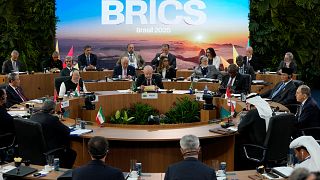
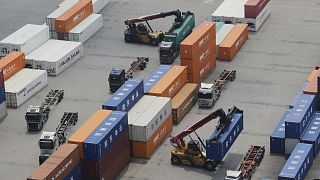
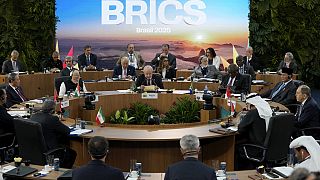


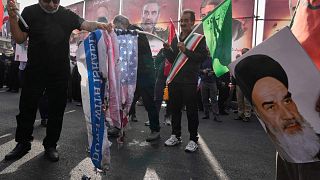


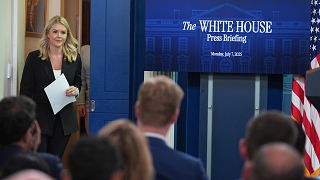
01:03
Ethiopia to post faster growth despite debt, inflation
Go to video
IMF: Global uncertainty weighing on MENA economies
01:36
Migration and refugee policies key to economic growth, Say UN and IMF experts
00:47
IMF Approves $1.2 Billion Disbursement for Egypt Amid Economic Reforms
Go to video
WTO and IMF warn of global trade disruptions a new U.S. tariffs
Go to video
Senegal: IMF calls for immediate reforms to address budget irregularities